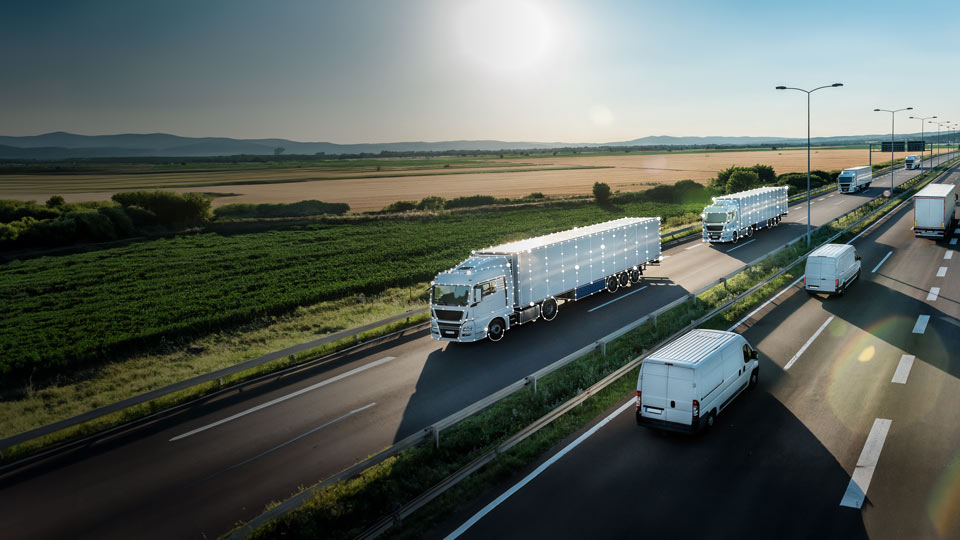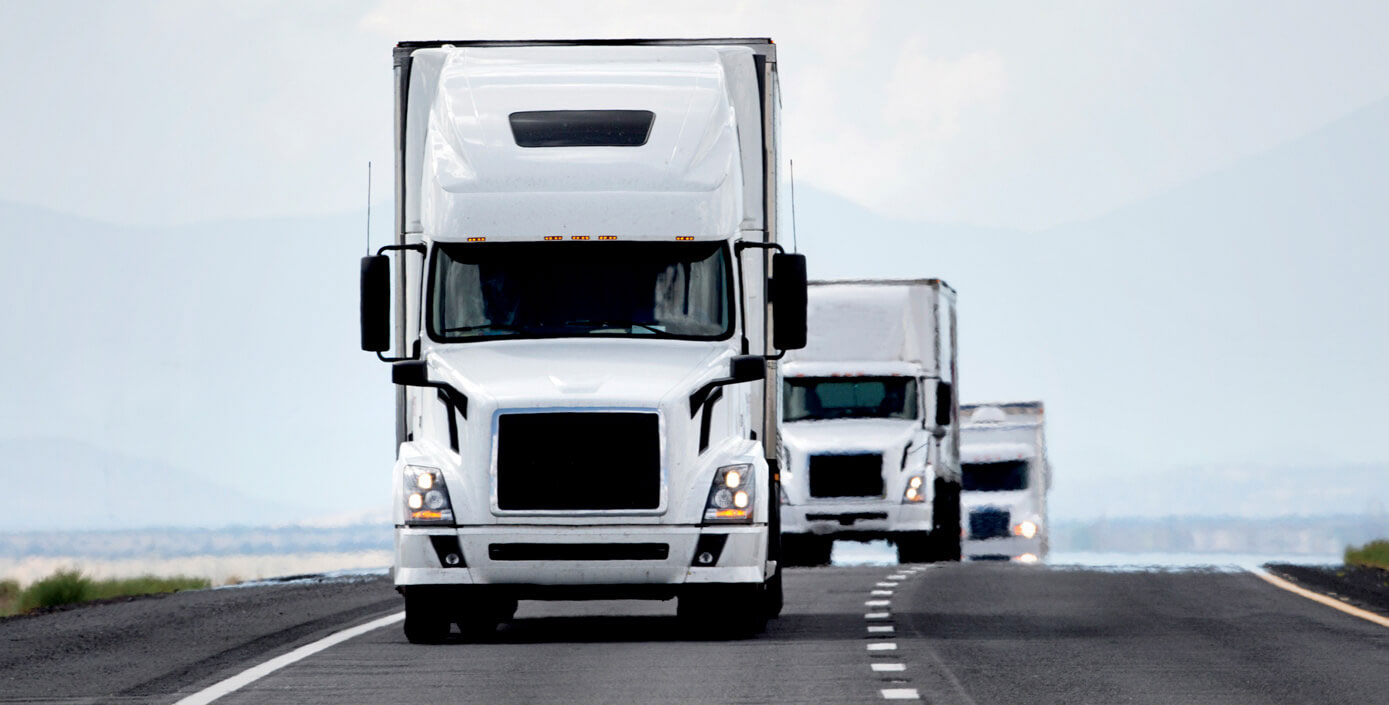
Fleet 2020: How UK fleets can lead the way to an electrified future

Table of Contents
Forward
It’s hard to think of many technologies developed over a century ago, which remain as systemically important as the automobile does to this day. A huge, global endeavour that powers trade and is part of day-to-day life for billions, the automotive industry’s growth has been fuelled by the internal combustion engine (ICE) through every type of disruptive hurdle imaginable.
Yet, it seems, the ICE’s time has come. With decarbonization top of the agenda at this year’s COP26 in Glasgow, a wave of technological and regulatory momentum is urgently propelling us into a new era of clean, connected, electrified mobility.
Underlining this change, public outcry to lower global carbon pollution levels and cut greenhouse gas emissions to net-zero has skyrocketed in recent times. In September 2019, huge crowds of people took to the streets in the ‘Global Week for Future’ strikes, protesting across 4,500 locations in 150 countries around the world. It’s estimated that roughly 6-7 million people participated in the protests, bringing an immeasurable amount of awareness to the global climate crisis. Around that same time, the United Nations held the annual Climate Action Summit in New York. At the event, over 65 countries and major sub-national economies committed to cut greenhouse emissions by 2050, and over 100 business leaders expressed concrete actions to align with the Paris Agreement targets and speed up the grey to green economy (1).
Though vastly different events, both had a common thread - the mobility sector’s impact on emissions. According to the World Health Organization, the transport sector is the fastest-growing contributor to climate emissions, and growth in energy use is higher for the industry than any other end-use sector. The Environmental Protection Agency in the United States claims that in 2017, emissions from transportation accounted for about 28.9% of total U.S. greenhouse gas emissions, making it the largest contributor in the nation (2). In Europe, the transport sector represents (3) almost a quarter of Europe’s greenhouse gas emissions, and in Asia, the share of total worldwide transport CO2 emissions is already estimated (4) to increase to 31% - almost double to what it was in 2006.
This paper is a response to the pressure that many are now feeling to accelerate the mobility sector’s response to the climate crisis by adopting zero-emissions vehicles more rapidly and more broadly. It explores how the public and private sectors are coming together on the issue, discusses the results of Geotab’s research on consumers’ and fleet managers’ attitudes to electric vehicles, and argues for the value and importance of collaborative, data-driven decision making in the transition to electric. As the demand for action grows, we must apply all the tools at our disposal to make the change happen.
– Edward Kulperger, Senior Vice President, Europe, Geotab
Pre-competitive, collaboration, proactive regulation
In an attempt to curb the impact of the global transport industry, countless government and industry-led initiatives have been introduced. The “Sustainable Mobility for All Initiative” was created in 2017 by the World Bank as an attempt to bring together over 50 member organizations to help shape and coordinate transport policy (5). Recently it was combined with the “Action Towards Climate Friendly Transport” initiative (6). This global roadmap focuses on planning city development in a way that eliminates the need to travel, facilitates the move from fossil-fuelled vehicles to non-motorized and public transport, and works to improve existing modes of transport through zero-emission technologies. In 2018, the UK government announced the ‘Road to Zero’ strategy, showcasing its ambition to see at least half of new cars to be ultra-low emission by 2030. This amalgamation of both private and public input proves the global commitment to reducing the mobility sector’s impact on climate change and pollution levels.
One of the most significant advancements to impact the transport industry’s emissions levels has been the creation of the modern-day electric vehicle (EV). Not only has consumer sentiment shifted in recent years, but some of the biggest OEMs have entered the space, creating their versions of a consumer-friendly electric car. According to a recent report, over 2 million electric vehicles were sold in 2018, up from just a few thousand in 2010 - and there is no sign of slowing down (7). It’s expected that passenger EV sales will rise to 10 million in 2025, 28 million in 2030, and 56 million by 2040.
The competition to create a realistic and quick to market EV model has been rife within the industry for years now. Audi, BMW, Nissan and Tesla are just some of the automotive companies putting significant investments into the market. Between traditional manufacturers and challenger brands like Volvo’s Polestar, the EV market is only expected to grow in the coming years, with at least 40 different models projected to be on the road by 2025 (8).
Climate awareness kicks in
Despite movements within the industry, without a collective buy-in from governments, industry leaders, and consumers, real change on a large scale is unlikely to occur. The good news is that recent data from Geotab’s survey of UK consumers suggests a huge surge in the adoption of hybrid and electric vehicles could be on the way – with almost two thirds (60%) of UK buyers expecting their next vehicle to be hybrid or electric.
Like many emerging technologies, electric vehicles have created a generational divide amongst consumers. According to the study, over half of millennials across the UK are planning to buy a hybrid or fully-electric model as their first car. While climate change is a concern for this group, they’re largely being driven by new technology features and being seen as early adopters of new automotive technologies.
The importance of climate change in decision making varies from region to region. As it stands, the highest level of concern about climate change in the UK falls within the Greater London area. Despite governmental figures that state 44% of citizens in the area claim to be ‘very concerned’ about climate change, just 37% identified the climate as a key motivating factor in this survey. Conversely,in the East Midlands, where 29% of people are very concerned about climate change, 42% of people consider it to be a key motivating factor.
Currently, 63% of those in London own a petrol or diesel vehicle, versus 90% elsewhere. Almost a third (27%) now say they own an EV, versus averages of 5-10% in other parts of the country. Even so, over half of Londoners plan for their next car to be a hybrid or electric model. Purchasing decisions vary but are most frequently fuelled by avoiding the new ULEZ charges, accessing new technology, and being seen as an early-adopter of new technology.
“Public sector initiatives on the need for clean transportation can happen – and are happening – at every level.
In October 2019, Geotab was a founding signatory to the Clean Air Declaration written and supported by UK100. As a network of local government leaders, UK100 is well positioned to share knowledge which supports community-level action.
The declaration highlights that, as well as the global emissions challenge, there is in urban areas a more localized public health issue from transport particulate emissions affecting air quality. It’s an initiative we’re proud to support.”
– Edward Kulperger, Senior Vice President, Europe, Geotab
Electric vehicles gaining traction among European fleets
In a study last year, Geotab found almost half of all fleets within the UK were without any electric vehicles, though 89% at the time expected them to play a dominant role in their company’s fleet before 2028. This year’s figures have confirmed this trend with only 2% of all fleet managers planning to not electrify their fleets. More specifically, 78% of fleet managers plan to electrify up to 50% of their fleets, and a further 33% would ideally like to transition 51% to 100% of their fleets to an electric model within the next five years.
Forty-six per cent of fleet managers are expecting EVs to play a dominant role in their company’s fleet within the next 1-5 years, while just over half (51%) imagine it will happen between the 5 to 10-year mark. As it stands, more than half of fleet managers in Germany expect e-mobility to play a dominant role in their fleets by 2028, though some are optimistic that it will happen sooner, with 44% agreeing it will happen in the next five to ten years. Twelve per cent are even expecting to be fully electrified within the next five years. In Spain, the situation is similar. Almost a quarter (24%) believe that electric vehicles will play a dominant role in their fleet between the next year to five years, while 43% believe it will take closer to five to ten years. If this trend continues on this trajectory, 67% of Spanish fleets will be electric by 2030, which is far ahead of Spanish regulatory goals to ban fossil fuel vehicles by 2050 and sales by 2040.
When identifying factors that would appeal to them in an EV, 41% of UK consumers cited reducing their impact on the climate as a key motivator, compared to 45% for lowering running costs, and 37% for lowering tax costs. Similar patterns emerged when pinpointing fleet manager motivations. In the UK, more than half (54%) fleet managers agree that the main benefit is the reduction in GHG levels and the overall environmental impact. This is closely followed by the management of fuels costs (47%), better total cost of ownership per vehicle (47%), and the reduction of operation, maintenance and upkeep (40%). To further incentivize EV fleet uptake, the UK government has also introduced a zero Benefit-in-Kind (BiK) rate. This new BiK rate will see all zero-emission company cars paying no tax. All zero-emission company cars will attract a reduced appropriate percentage of 0% in 2020-21, 1% in 2021-22, before returning to the planned 2% rate in 2022-23 (9).
In Germany, 50% of fleet managers are motivated to convert to EVs by the positive impact on the environment, followed by 21% by the reduction in costs, maintenance and repairs. In Spain, going green is the strongest motivator (83%) and is followed by the need to replace fossil fuels (69%) and adopt the incentives that the public sector and government are generating (36%) within the region.
The ongoing barriers to adoption
Though the electric vehicle revolution is seemingly in full swing, there are still major barriers blocking it from becoming a reality. Motivations are clear and levels of enthusiasm are high, but an increasing number of technical issues are hindering consumers throughout the path to purchase.
Almost all (97%) of UK drivers have daily round-trip commutes of under 100 miles – well below the average 224-mile range of the nation’s top five best-selling EVs. Despite the shorter journey, range anxiety is still a major concern with 42% per cent claiming it’s a top stressor, and 36% uncertain on where they could charge their electric vehicle. Seventy-give per cent of millennial consumers agree the UK should be doing more to scale-up infrastructure, which is higher than the average of 63% across other generations.
In contrast, charging infrastructure is less of a concern within the Greater London area as it’s considered to have a high number of charge points per electric vehicle - 0.74 for every 1000 people. This frequency has resulted in the highest level of EV infrastructure satisfaction in the country, with 38% agreeing that their local area has good EV charging infrastructure.
While there might be different requirements, different purchasing journeys, and different motivating factors for consumer and commercial EVs, it’s important to take a holistic view of the market as demand in these two segments will potentiate one another.
“Consumer adoption is likely to demonstrate to businesses that there is a market advantage in proving to consumers that they are acting; commercial adoption will help create a thriving second-hand EV market; and infrastructural rollout will be shared across, and benefit, the whole mobility sector.”
– Edward Kulperger, Senior Vice President, Europe, Geotab
On the commercial side, similar fears exist among fleet managers across the world. In Germany, 46% agree that the greatest obstacles to the uptake of EVs is a lack of public charging infrastructure and long charging times. In Spain, the same concerns ring true. Low autonomy is the main barrier (66%) followed by the high costs of rental or acquisition (62%) and the lack of public infrastructure (41%). Though considered a concern for UK consumers, a lack of public charging infrastructure (26%) is not the main concern amongst fleet managers. High vehicle cost (32%) is the biggest hindrance to adoption, followed by long charging times (29%) and a lack of availability of medium to heavy EV models (29%).
Despite being faced with cost concerns, a lower purchase price isn’t the primary change that would motivate fleet managers to transition to an EV fleet. Improvement to charging infrastructure (41%), improved OPEX (39%), and a better understanding of benefits (38%) are considered the leading motivators in the UK. The perception in Germany is slightly different, with 67% agreeing that a higher range for EVs, improved infrastructure (50%) and lower purchase point (40%) would motivate them to switch to electric vehicles. Fleet managers in Spain would consider electrifying their fleet if there were major improvements in autonomy (27%), charging infrastructure (22%), and pricing (19%).
Easing the transition
One thing that this research demonstrates is that, in terms of both risks and benefits, there are many factors which potential purchasers need to consider. With high levels of agreement across multiple issues, it’s clear that the industry cannot simply respond to one of these and expect to unlock the problem as a whole; confidently adopting EVs will require a deeper understanding across the spectrum.
For fleet managers, telematics can help bridge that gap and build confidence into the decision to go electric. Before it can be confident that an EV model will deliver enough range to fulfil its task, a business needs to fully understand how far its vehicles need to travel, and how far they actually travel, on a daily basis. Before it can be confident that recharging periods will fit into the duty cycle of its vehicles, a business needs a thorough picture of its current fleet downtime and how that might be changed. EVs raise new questions and therefore fleet managers need a long-term view of the potential challenges their fleet can face.
Data is the enabler for EVs. Data-driven intelligence helps us understand the dynamics of a fleet, allowing us to assess whether deploying EVs makes commercial sense - providing previously unattainable insights. It enables organizations to approach the transition from an informed perspective, giving a unique level of insight into fleet behavior, best practices, and an overall outlook on ROI.
UK changes on the horizon
As a whole, Brits are on the fence about whether progress is being made in terms of cleaning up the country’s roads. While 36% of people agreed that the UK is making good progress on EV adoption, 66% believe that the UK needs to do more. Almost two thirds (63%) feel the UK should be doing more to scale-up charging infrastructure and only a fifth feel there is adequate EV charging options in their local area. This is particularly notable outside of the Greater London area, where only 21% are happy with current charging options.
In Scotland for example, only 17% of consumers are satisfied with the EV infrastructure - despite having the second-highest number of charging points (0.61 per 1000 people). Yet despite concerns, most are still hopeful for major advancements within the market - if the government provides support. The majority (90%) fleet managers expect change to be implemented by government regulations similar to the ‘Road to Zero’ strategy.
UK fleets in 2020 and beyond
There’s no doubt that the prevalence of EV models will continue to grow as consumers and fleet managers across the world look to do their part in lowering emission levels. Though despite good intentions, making the transition to a fully electric fleet can come with its own set of complications. Not only can complex hurdles, like a lack of infrastructure and high price points raise concerns, the sheer quantity of decisions can be overwhelming.
In a growing EV market, fleet managers must do their duty and find a model that best matches their range and operating requirements, as well as one that accommodates local conditions, driver behavior, and overall operational costs. That’s why many fleet managers (96% in the UK) choose to partner with a telematics provider. By having all information in one place, it allows them to be empowered to optimize their mixed fleet usage and ensure that they are getting the maximum return on investment from their electric fleet.
Geotab’s EV Suitability Assessment enables fleet managers to join the dots between current fleet behavior, required EV capabilities, and the options available on the market, to make recommendations as to where a fleet can effectively be electrified and what the return on investment from doing so is likely to be.
To find out more about where your fleet is on the journey to electrification, visit:
https://www.geotab.com/fleet-management-solutions/electric-vehicles
References
1. https://www.un.org/en/climatechange/assets/pdf/CAS_closing_release.pdf
2. https://www.epa.gov/ghgemissions/sources-greenhouse-gas-emissions#transportation
3. https://ec.europa.eu/clima/policies/transport_en
4. https://www.adb.org/sectors/transport/key-priorities/climate-change
5. https://sum4all.org/
6. https://www.uitp.org/news/uitp-launches-action-towards-climate-friendly-transport-act-global-
partners
7. https://about.bnef.com/electric-vehicle-outlook/
8. https://www.businessinsider.com/electric-cars-that-will-be-available-by-2025-2018-1?r=US&IR=T
9. https://fleetworld.co.uk/wltp-review-brings-freeze-on-bik-and-0-ev-rate/
Post Tags
About Geotab
Geotab is a global leader in connected vehicle and asset solutions, empowering fleet efficiency and management. We leverage advanced data analytics and AI to transform fleet performance, safety, and sustainability, reducing cost and driving efficiency. Backed by top data scientists and engineers, we serve over 55,000 global customers, processing 80 billion data points daily from more than 4.7 million vehicle subscriptions. Geotab is trusted by Fortune 500 organizations, mid-sized fleets, and the largest public sector fleets in the world, including the US Federal Government. Committed to data security and privacy, we hold FIPS 140-3 and FedRAMP authorizations. Our open platform, ecosystem of outstanding partners, and Marketplace deliver hundreds of fleet-ready third-party solutions. This year, we're celebrating 25 years of innovation. Learn more at www.geotab.com and follow us on LinkedIn or visit Geotab News and Views.
© 2025 Geotab Inc.All Rights Reserved.
This white paper is intended to provide information and encourage discussion on topics of interest to the telematics community. Geotab is not providing technical, professional or legal advice through this white paper. While every effort has been made to ensure that the information in this white paper is timely and accurate, errors and omissions may occur, and the information presented here may become out-of-date with the passage of time.
Recent News

Geotab Ace: Revolutionizing Fleet Management with Responsible Generative AI
December 2, 2024

Sustainable fleet management: data-driven insights to enhance the bottom line
July 2, 2024

Achieving a Return on Safety: How an integrated approach to fleet safety can generate value for you
June 20, 2024

AOBRD vs ELD: What's the Difference?
June 18, 2024